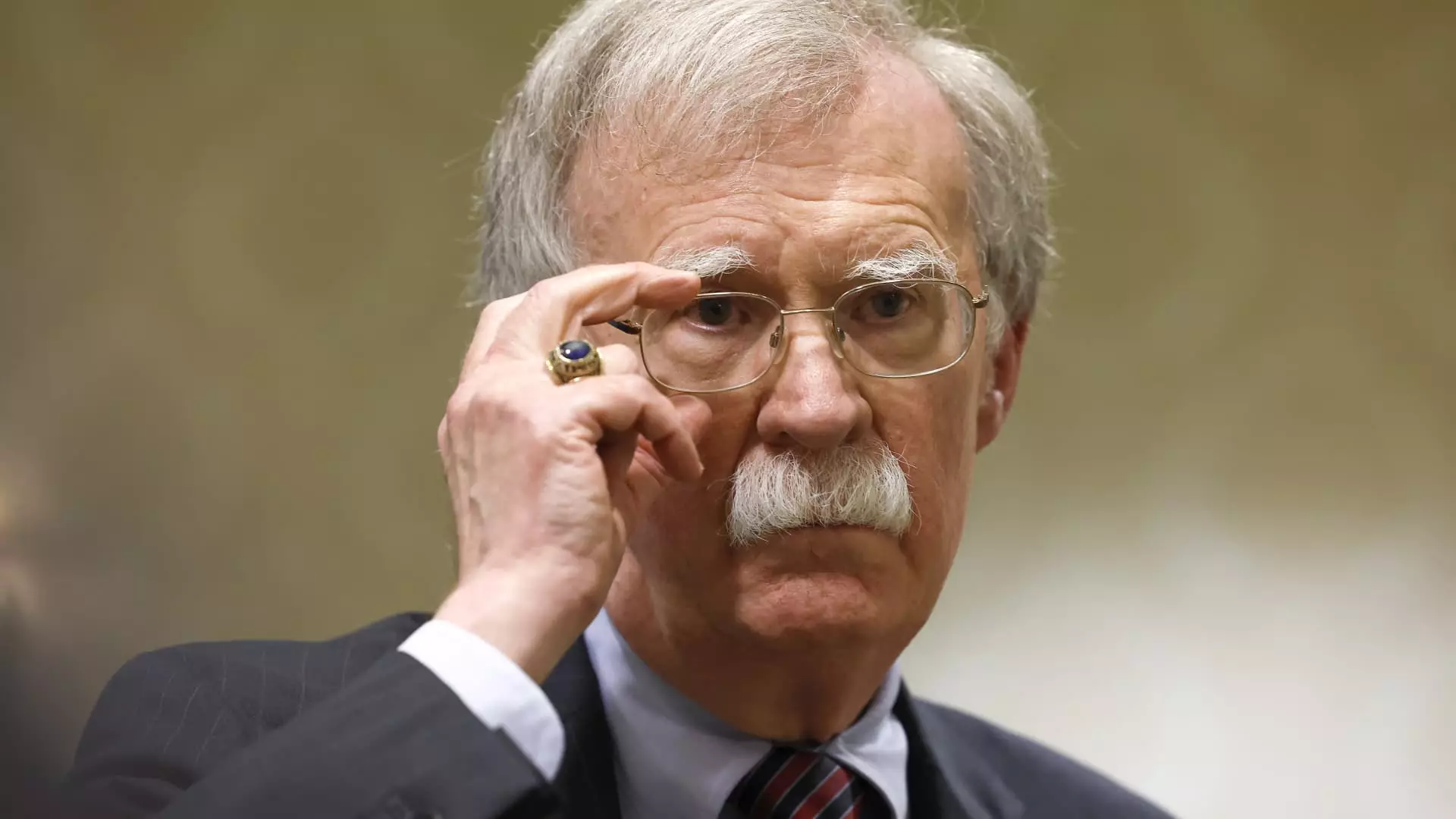In a bold and contentious maneuver, President Donald Trump has unleashed a whirlwind of global tariffs, sparking not only economic chaos but also significant diplomatic fallout. John Bolton, former national security advisor, elucidated the gravity of this miscalculation, positing that Trump’s strategy is akin to slapping a friend in the face while expecting them to dance to your tune. This bluster profoundly misjudges the nature of international relationships and reduces the U.S. to isolating itself from key allies. It’s a precarious balancing act where Trump’s misunderstanding of trade dynamics could have consequences far beyond mere economics, positioning America on the verge of losing its standing in a globalized world.
Bolton’s assertion that America is retreating strategically by antagonizing allies is particularly poignant. The U.S. could have united with its closest partners—nations like Japan, South Korea, and members of the European Union—to form a collective front against China’s purportedly predatory practices. Instead, Trump’s “America First” policy appears more divisive than corrective, prompting allies to reconsider their loyalty amidst unprecedented tariffs that indiscriminately affect friend and foe alike.
The Flawed Economics Behind Tariff Calculations
At the heart of this turmoil lies an economic folly, a simplistic view of trade deficits that ignores the complexities of global commerce. Trump’s blanket 10% tariff may have been billed as a method of achieving reciprocal trade, but economists have widely denounced it as nonsensical and poorly prioritized. By imposing tariffs without nuanced understanding, he has sent shockwaves through international markets, erasing trillions in wealth and unsettling an already brittle global economy. In the immediate aftermath of Trump’s declarations, investors watched in horror as the stock markets plummeted and yields on U.S. treasuries surged.
Is this really the “liberation day” Trump proclaimed? The only liberation taking place seems to be for economic uncertainty, with markets reeling under the weight of aggressive retaliations. The conventional wisdom that tariffs protect domestic industries is being upended by the stark reality that these policies could actually undermine them, as manufacturers face inflated costs and consumers confront rising prices.
A Diplomatic Faux Pas: Alienating Allies
The international response to Trump’s trade war has been swift and vehement, with leaders from France and beyond lamenting the erosion of trust that has defined U.S. foreign relations since World War II. French Prime Minister François Bayrou’s metaphor of a “hurricane” aptly captures the disruption that Trump’s approach has created. Xi Jinping, the mastermind behind China’s own strategic campaigns, is capitalizing on the opportunity to consolidate alliances in Asia while America’s leadership is diminished by its self-inflicted schisms.
Nothing illustrates this diplomatic misstep better than the contrasting narratives being spun on the global stage. While Trump is withdrawing from multilateralism, Xi is embracing it. The Chinese leader’s recent travels through Southeast Asia, during which he’s actively courting allies, signify a shift in the geopolitical landscape that bears troubling implications for U.S. influence. If America continues to flare up tensions with its allies, it risks ceding its role as a central player, with China poised to fill that vacuum.
The Broader Implications and Strategic Blindness
It’s not simply the economic implications that are troubling; it’s the broader geopolitical dynamics at play. Bolton’s assertion that Trump is failing to understand the ramifications of alienating allies is exacerbated by China’s calculated response to U.S. tariffs. The fact that Chinese tariffs on American goods have already escalated to a staggering 125% is a testament to the escalatory spiral underway. Rather than using tariffs as a tool for negotiation, Trump appears to have set the world’s two largest economies on a path to mutual destruction.
Facing this diplomatic and economic abyss, it’s crucial to recognize that a peaceful resolution with China hinged on collaboration with other countries facing similar grievances. Instead, the U.S. is embroiled in a destructive trade war that not only jeopardizes its relationships but opens doors for ambitious rivals. The so-called “art of the deal” has devolved into an art of divisiveness and paranoia, leaving the U.S. standing alone.
The folly of Trump’s tariffs lies not just in their economic illogic but also in the stark reality that America risks becoming a global pariah. The path forward requires a nuanced understanding of global interconnectedness, lest we descend further into chaos.

